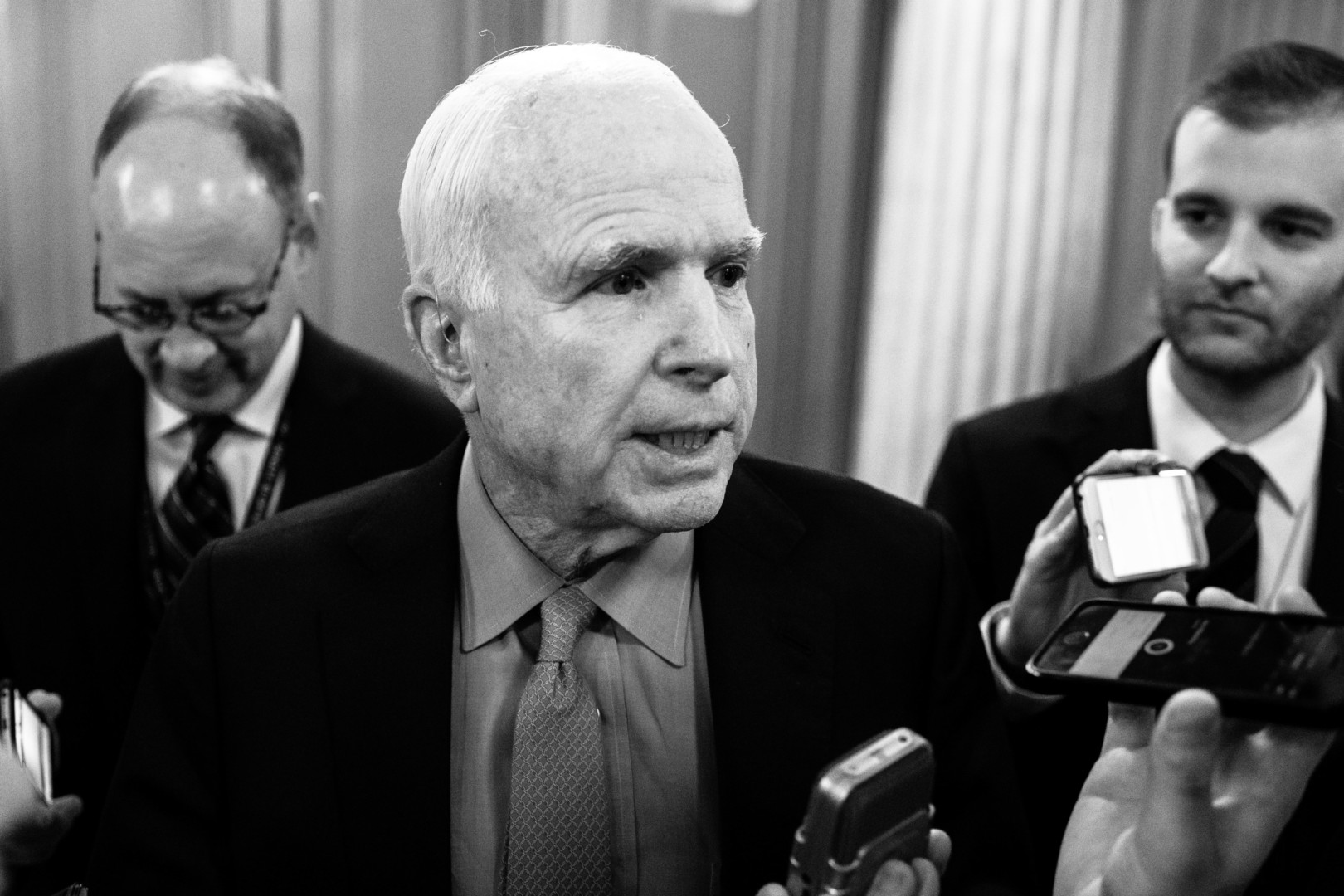The Senate on Thursday rejected a spending increase for the military that Democrats said had the potential to derail the entire appropriations process.
Senators voted 56-42 to advance an amendment to the annual defense policy bill that would increase defense spending by $18 billion. Eleven Republicans voted against considering the proposal, and thirteen members of the Democratic caucus bucked their leadership and voted for it. Sixty votes were required to move forward with the amendment.
At the heart of the fight was Democrats’ demand for parity between defense and domestic spending. They said the amendment, filed by Senate Armed Services Chairman John McCain (R-Ariz.), violated last fall’s bipartisan budget deal.
“If Republicans pass this amendment of Senator McCain they’ll have a broken budget agreement and they’ll grind the defense appropriations bill to a halt,” Senate Minority Leader Harry Reid (D-Nev.) said Thursday before the vote.
McCain’s amendment would increase defense spending using the Pentagon’s war fund, which is not subject to the spending caps. Before the vote, McCain and fellow war hawk Sen. Lindsey Graham (R-S.C.) made their case for the proposal on the Senate floor.
“All the reports we hear from the military is that sequestration is killing them,” McCain said. “The mismatch of what we are now seeing in the world as compared with the continued 150 billion dollars less than fiscal year 2011 is putting the lives of the men and women who serving this nation in danger.”
“Everybody loves the military, well your love doesn’t help them,” Graham said. “Your love doesn’t buy a damn thing. If you love these men and women you will adequately fund their needs.”
In response to McCain’s proposal, Democrats filed their own amendment to match the defense spending increase on the domestic side. Their amendment, which was filed by Armed Services ranking member Jack Reed (D-R.I.), would authorize funds for a number of Democratic priorities. For instance, it would fulfill President Obama’s $1.9 billion request to fight the Zika virus, and provide more funding to fight the opioid abuse epidemic and water infrastructure, among other provisions.
“If the Republicans pass the defense amendment, but then block a similar increase to middle-class programs, they will have broken the budget agreement,” Chuck Schumer (D-N.Y.) said Tuesday. “And the appropriations process will come to a grinding halt. They know that.”
The Senate voted against considering both provisions on Thursday, with Reed’s amendment failing by a 43-55 margin. Republican Sens. Kelly Ayotte of New Hampshire and Rob Portman of Ohio — who are both up for re-election and are key players in the effort to address opioid abuse –- joined 40 Democrats in supporting Reed’s amendment. Three Democrats – Sens. Tom Carper of Delaware, Joe Manchin of West Virginia and Jon Tester of Montana – voted against the amendment.
Correction
A previous version of this article misstated the number of senators voting to increase defense spending on the bill.

